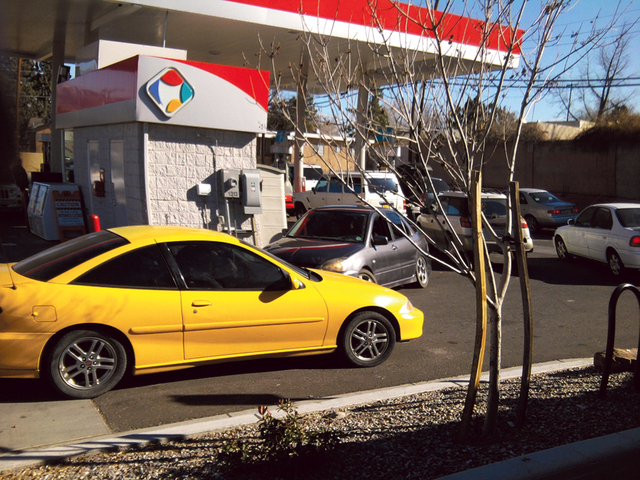Fuel To The Fire: Smith’s Gas Station Angers Neighbors


The small lot of the Smith’s gas station on Constitution and Carlisle lacks space for cars to wait while others refuel.
Andy Carrasco

Tankers are forced to enter the site by rolling down an alley next to homes. Neighbors say they worry the trucks get to close to their property and could be dangerous.
Andy Carrasco

An already congested intersection is made worse as trucks exit and cars attempt to refuel.
Andy Carrasco




